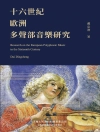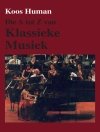Situates the controversial narrative of ‘The English Musical Renaissance’ within its wider historical context.
Throughout the nineteenth century a fierce debate about the future of English music was raging in Britain. Just as English music was appearing to advance in quality, the impact of Richard Wagner altered the course of the debate. Alarmed at the Wagnerian influence on English composers, critics expressed relief when that influence appeared to abate, and then presented English music as the antidote to Wagnerian decadence. However, the optimism that England was in a position to lead the musical world was short-lived and a new generation of critics found English composition – with the exception of Elgar – severely lacking. The book identifies themes such as materialism and nationalism that emerged during the debate. It also places the narrative of ‘The English Musical Renaissance’ within its rightful wider historical context.
Tabla de materias
Introduction
1 – 1815-25: an unmusical nation?
2 – 1826-75: hope deferred
3 – 1876-87: the impact of Wagner
4 – 1888-92: dissenting voices
5 – 1893-7: the expression of feeling
6 – 1898-1902: the limits of musical expression: ethical and theoretical
7 – 1903-7: the younger generation
8 – Demand and supply
9 – Themes and issues
Periodicals and contributors
Bibliography
Sobre el autor
JOHN LING is an independent scholar having gained a Ph D in Musicology at Royal Holloway (University of London).












